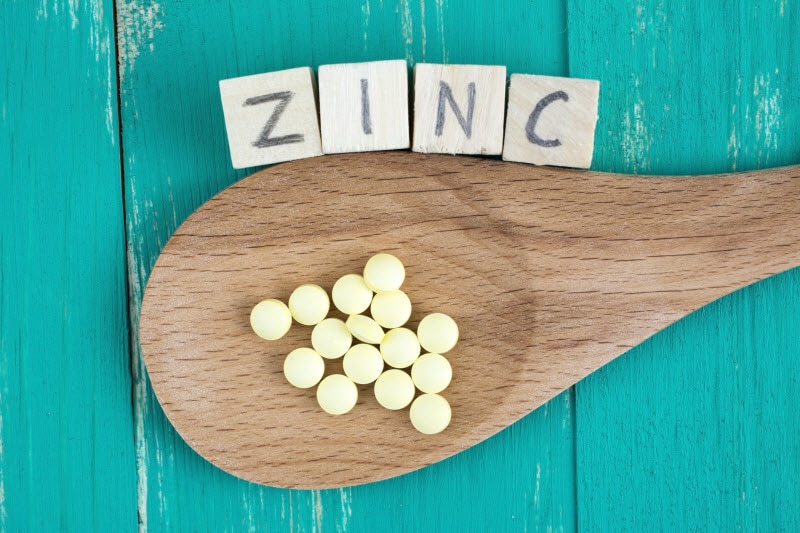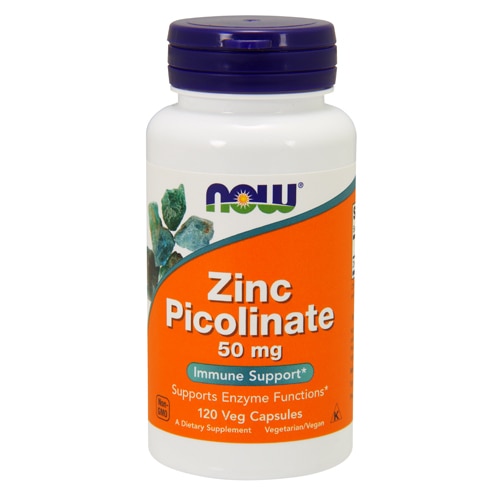If you’ve ever browsed a vitamin shop or health food store looking for an effective zinc supplement, you may have noticed the plethora of options. Chelated zinc, zinc gluconate, zinc oxide and zinc citrate – what’s the difference and what type of zinc is best?

Because zinc intake is critical for human survival and we need to consume the mineral to maintain healthy levels, choosing the right type of zinc supplement may have a tremendous impact on your overall health.
Why is zinc important for the human body?
Zinc is an essential trace mineral that must be obtained in your diet because your body can’t make it on its own. It’s actually the second most abundant trace mineral in the human body, present throughout all bodily tissues.
It’s critical for overall health and survival because its needed for healthy cell division. It plays an essential role in many biochemical pathways, including the function of major body systems like the central nervous system, nervous system and immune system.
The
benefits of zinc also include its role as a powerful antioxidant that fights oxidative stress. It helps to control inflammation in the body and supports the body’s ability to maintain (or return to) homeostasis.
All this to say, your body needs zinc. Consuming
foods rich in zinc is the best way to maintain healthy zinc levels, but it’s not uncommon to develop a zinc deficiency, which can have serious consequences.
What should you know about zinc deficiency?
Zinc deficiency impacts about 17 percent of the global population, as estimated by
a 2019 report. It may occur when a person doesn’t eat enough foods containing zinc or has trouble absorbing the mineral because of digestive or gut health issues. Women on hormone replacement therapy, birth control pills or those who are pregnant or nursing are also at an increased risk of zinc deficiency.
Some of the most common symptoms of zinc deficiency include:
- Weak immunity
- Food and Environmental Allergies
- Diarrhea
- Slowed wound healing
- Acne and rashes
- Hormonal problems
- Infertility
- Chronic fatigue syndrome
- Thinning hair
- Weight changes
- Changes in appetite
- Poor concentration
- Nerve dysfunction
The different forms of zinc
With so many types of
zinc supplements out there, it can be confusing to choose one that will get the job done. Why are there so many types of zinc? To improve zinc absorption in the body, it’s often “
chelated,” or bound to another compound or amino acid. The compound that zinc is bound to impacts its bioavailability and efficacy.
To simplify your options, here’s the breakdown of the most common forms of zinc:
Zinc Gluconate: This is the most common over-the-counter zinc supplement that’s found in your local drug or health food store. It’s made with gluconic acid is often found in oral supplements, nasal zinc sprays or
lozenges. A meta-analysis
indicates that zinc gluconate lozenges were able to reduce cold duration 28 percent.
†
Zinc Citrate: This type of zinc is made with citric acid. A study
found that when given as a supplement without food,
zinc citrate absorption was comparable with that of zinc gluconate, and higher than zinc oxide.
†
Zinc Picolinate: This chelated form of zinc salt is made with picolinic acid and is popular for oral use to reverse zinc deficiency.
One study comparing the absorption of zinc picolinate, zinc citrate and zinc gluconate shows that there’s no significant change in any of these forms, but
zinc picolinate did improve zinc absorption in humans.
†
Zinc Acetate: This type of zinc supplement is made with citric acid. Zinc acetate is often added to remedies for the common cold, like nasal sprays and lozenges. A meta-analysis
found that zinc acetate lozenges may actually be more effective than zinc gluconate lozenges in reducing cold duration.
†
Zinc Oxide: Zinc oxide is used internally and topically. Orally, it’s known to be less bioavailable than zinc gluconate. Topically,
zinc oxide is used in
sunscreens and formulas meant to improve skin issues such as diaper rash, eczema and psoriasis.
†
Zinc Sulfate: This is a zinc salt that is sometimes used in eye drops to ease irritation. It’s also taken orally to speed up wound healing. It may, however, cause stomach irritations because it competes with the intestinal absorption of calcium.
†
“Enzyme Activated” Zinc: A newer option on the market is
“enzyme activated” zinc that differs from elemental zinc or chelated zinc. This type of zinc is made from whole-food fermented, enzyme activated zinc to improve body absorption. It may be most comparable to increasing zinc levels with natural food sources.
†
Keep in mind, with all of these zinc supplements out there, eating foods rich in zinc is still the best way to maintain healthy levels of the mineral. Consuming pumpkin seeds, cashews, kefir, grass-fed beef, lamb and chicken are great options for keeping those zinc levels where you need them to be.
What is the recommended dose of zinc?
The USDA suggests the following dietary intakes for zinc among adults:
- Males age 14 and over: 11 milligrams per day
- Females 14-18 years: 9 milligrams per day
- Females age 19 and over: 8 milligrams per day
- Pregnant and breastfeeding women: 11-12 milligrams per day
Most experts consider the tolerable upper limit for zinc at around 40 milligrams per day. “High doses” are amounts between 25-45 milligrams per day. People working to treat a zinc deficiency may benefit from taking 30 milligrams of zinc per day for 90 days.
If you are taking higher amounts of zinc, be sure to speak to your healthcare provider about potential adverse effects. Also, if you are taking higher doses of zinc, be sure to take a supplement that contains copper as well so that the mineral isn’t depleted by increased zinc intake.
†These statements have not been approved by the Food and Drug Administration. These products are not intended to diagnose, treat, cure or prevent disease.
 Because zinc intake is critical for human survival and we need to consume the mineral to maintain healthy levels, choosing the right type of zinc supplement may have a tremendous impact on your overall health.
Because zinc intake is critical for human survival and we need to consume the mineral to maintain healthy levels, choosing the right type of zinc supplement may have a tremendous impact on your overall health.



